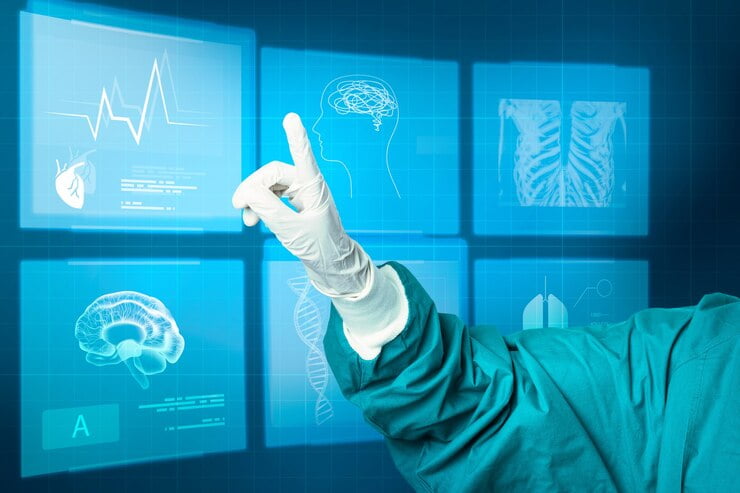In the ever-evolving landscape of healthcare, advancements in technology have continuously shaped the way we approach diagnosis, treatment, and patient care. Among these technological marvels, artificial intelligence (AI) stands out as a revolutionary force, promising transformative changes that improve the efficiency, accuracy, and accessibility of healthcare services worldwide. From diagnosing diseases to personalizing treatment plans, the integration of AI into healthcare systems has unleashed a wave of unprecedented benefits, ushering in a new era of medical innovation and patient-centric care.
- Early Disease Detection and Diagnosis: One of the most profound impacts of AI in healthcare lies in its ability to analyze vast amounts of medical data with unparalleled speed and precision. Machine learning algorithms can sift through complex patient records, medical images, and genetic information to identify patterns and anomalies that might escape the human eye. This capability enables early detection and diagnosis of diseases such as cancer, cardiovascular conditions, and neurological disorders, significantly improving patient outcomes and survival rates.
- Personalized Treatment Strategies: Healthcare is not a one-size-fits-all endeavor, and AI recognizes this fundamental truth. By leveraging patient-specific data, including genetic profiles, medical histories, and lifestyle factors, AI algorithms can tailor treatment plans to suit the unique needs and preferences of individual patients. From recommending medication dosages to predicting treatment responses, AI-driven insights empower healthcare providers to deliver personalized care that maximizes efficacy while minimizing adverse effects.
- Enhanced Medical Imaging and Diagnostics: Medical imaging plays a crucial role in diagnosing a wide range of medical conditions, from fractures and tumors to cardiovascular abnormalities. With AI algorithms, medical imaging technologies such as MRI, CT scans, and X-rays become even more powerful tools in the hands of healthcare professionals. AI-powered image analysis can help radiologists interpret images more accurately, expedite the diagnosis process, and even identify subtle signs of disease that might be overlooked by human observers.
- Streamlined Administrative Processes: In addition to clinical applications, AI offers significant benefits in streamlining administrative tasks and improving operational efficiency within healthcare organizations. Natural language processing (NLP) algorithms can automate transcription, documentation, and coding processes, reducing the burden on healthcare providers and minimizing the risk of errors. AI-driven predictive analytics also enable healthcare administrators to optimize resource allocation, anticipate patient influxes, and improve overall workflow management.
- Remote Monitoring and Telemedicine: The rise of telemedicine and remote patient monitoring represents a paradigm shift in healthcare delivery, made possible in large part by advancements in AI technology. With wearable devices, sensors, and mobile health applications, patients can now monitor vital signs, track symptoms, and communicate with healthcare providers from the comfort of their homes. AI algorithms analyze real-time data streams to detect trends, flag potential health concerns, and trigger timely interventions, enhancing continuity of care and reducing the need for unnecessary hospital visits.
In conclusion, the benefits of AI in healthcare are vast and far-reaching, promising to revolutionize the way we prevent, diagnose, and treat medical conditions. By harnessing the power of data, algorithms, and automation, AI empowers healthcare professionals to deliver more precise, personalized, and patient-centric care than ever before. As we continue to explore the boundless potential of AI-driven innovations, the future of healthcare looks brighter, healthier, and more compassionate for individuals and communities around the world.

 The Importance of Regular Health Checkups: Investing in Your Well-being
The Importance of Regular Health Checkups: Investing in Your Well-being
 The Benefits of AI in Modern Medicine
The Benefits of AI in Modern Medicine
